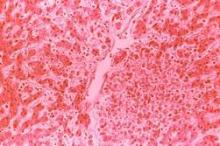The phase III trial of a tetravalent dengue vaccine among children in Latin America has shown the vaccine to be protective against the virus, with significant reductions in the risk of hospitalization with dengue.
The placebo-controlled trial of a three-dose vaccine schedule among 20,869 children living in dengue-endemic regions showed a vaccine efficacy of 60.8% in the per-protocol analysis and 64.7% in the intention-to-treat population of individuals who received at least one injection, researchers said at the annual meeting of the American Society of Tropical Medicine and Hygiene.
The vaccine had an efficacy of 95.5% in preventing severe dengue and 80.3% efficacy in preventing hospitalization, while also showing efficacy against serotypes 1, 2, 3, and 4 and a rate of adverse events similar to that of the placebo group, according to a paper published simultaneously online in the New England Journal of Medicine (2014 Nov. 3 [doi:10.1056/NEJMoa1411037]).
“Overall, the results of our study and the Asian study provide a consistent picture of the efficacy and safety of this dengue vaccine after 25 months of active surveillance in 10 countries among different populations (including a variety of ages and ethnic backgrounds) over different seasons with different circulating serotypes and levels of endemicity,” wrote Dr. Luis Villar of the Universidad Industrial de Santander, Colombia, and colleagues.
The study was supported by Sanofi Pasteur. Some authors were employees of Sanofi Pasteur, and others declared institutional and research grants and honoraria from the study sponsor and other pharmaceutical companies.


